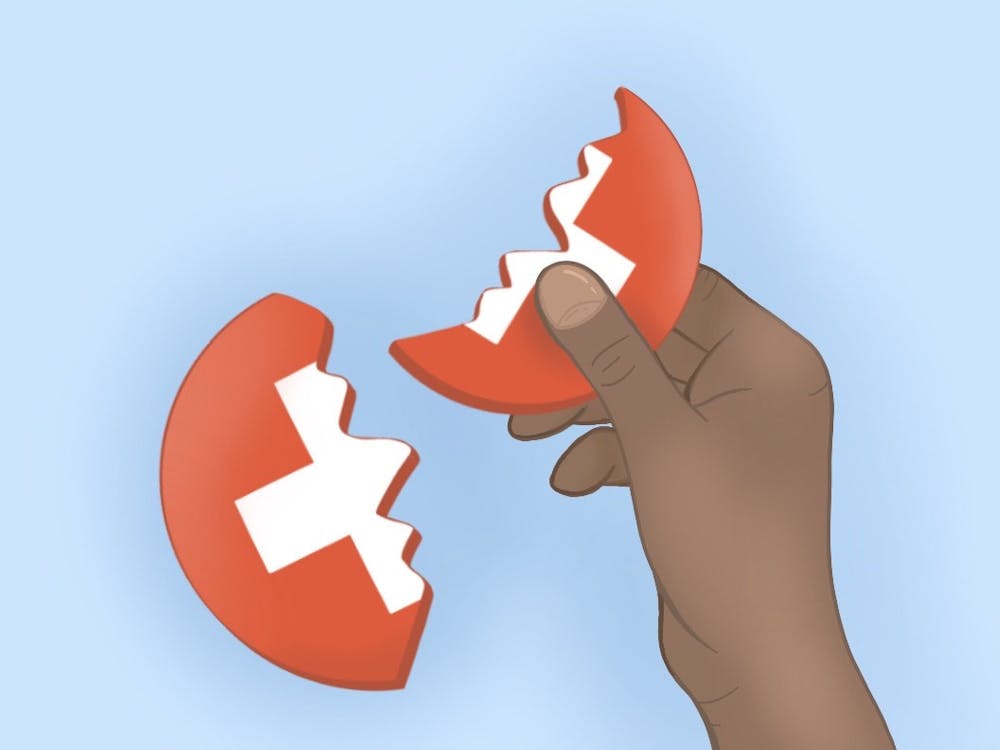When Julia Rainer had her first daughter, she felt silenced.
When she asked questions, they were ignored. When she brought up natural birth, she was told she couldn’t handle it. As a young, Black mother, she was never asked for her consent and her thoughts were never considered.
“I feel like I was robbed of the experience of it being beautiful because I had to be on edge advocating for myself,” Rainer said.
Rainer isn’t the only one to experience neglect as a new mother. Mistreatment is especially prevalent among Black mothers, who are often viewed through stereotypical lenses as sassy or aggressive, she said.
“I don’t think that our wishes are always respected,” she said. “It always seems like we’re just asking for too much or doing too much. I think that we’re also expected to be stronger as Black women. When we’re hurting or when we are in pain, it’s not taken seriously.”
Her experience pushed Rainer to take action to ensure other mothers didn’t experience what she had. She began researching doulas, professional labor assistants who provide prenatal, birth and postpartum care. Rainer became certified about five years ago. She has assisted 15 births since.
This mistreatment of Black women is a small part of a larger healthcare issue, seeping into the foundation of systemic marginalization and discrimination.
Black women experience excess mortality compared to other women in the U.S., including a shorter life expectancy and higher rates of maternal mortality, according to the Journal of Women’s Health. They are three times more likely to die from pregnancy-related causes than white women, according to the Centers for Disease Control and Prevention.
They are also disproportionately affected by chronic conditions like cardiovascular disease and obesity.
In Alachua County, Black people face disproportionate access to health care, due to a smaller portion of the population having insurance coverage or transportation compared to other populations, according to a 2018 report by the Bureau of Economic and Business Research.
In July 2020, Melissa White, a Black Gainesville mother, hired Rainer for her fifth childbirth. Having a doula changed her birthing experience, she said.
During White’s second childbirth, she felt decisions were made without her consideration. She wasn’t talked to about her first epidural, and she felt like she didn’t have choices.
However, Rainer guided White through her options and supported her decisions. She taught her and her boyfriend breathing and comfort techniques.
“I felt secure, like I was going to be okay,” she said. “If something went wrong, she knew what to do.”
White believes Rainer’s knowledge and blackness can have a huge impact on mothers who are nervous about hospital birth. Childbirth has a huge emotional toll, White said, especially for Black women.
“I just feel like somebody there knowing what you can do and what the hospital can or cannot do … is very beneficial because I really do feel like we're not heard,” she said.
About a year ago, Rainer launched her business Create Space. Through Create Space, she works as a childbirth educator and doula to advocate for mothers who may feel nervous about hospital birth.
Rainer works on home and hospital births, including at UF Health Shands Hospital and North Florida Regional Medical Center.
While she supports medical intervention during birth, she believes the birthing experience has a negative connotation.
“I just believe that Western culture has made us think that birth needs to be done in a hospital and it needs to be done with this intervention and that intervention,” Rainer said.
While there will be moments of intensity, childbirth is meant to be a great experience, not a painful one, she said. To prepare for it, she gets to know her clients and their significant others on an intimate level.
“I find out what the mom does like and what she doesn't like,” she said. “We focus on comfort measures.”
Rainer knows not everyone can afford a doula, so she is working to educate more people in the Black community. Through Create Space, she plans to hold seminars on childbirth education. These would teach women self-advocacy and labor terminologies, choices and rights.
Alyssa Zucker, UF professor and women’s studies chair, said health disparities are the outcome of a society historically centered around whiteness.
“Dating back to the times of enslavement, Black women were really bred,” she said. “So there was this sort of disregard for their humanity and their motherhood.”
She believes traces of this attitude exist today. Because of this, Black women may avoid seeking care, Zucker said.
“I think when you bring that into a pregnancy, it can cause people to overlook problems and to not take things seriously enough when there are warning flags that something’s going wrong in pregnancy,” Zucker said.
Mistreatment spikes stress, which could cause difficulties during pregnancy. This stress is accumulated over a lifetime, she said.
“They’ve had their whole life as a Black woman up until then, living in a society that’s really built around whiteness, and so that [mistreatment] — this is just an added stressor,” Zucker said.
Nilufer Akalin, a gender, sexualities and women’s studies professor, researches Haitian immigrants’ healthcare access. As their Black, female and immigrant identities intersect, they become victims of microaggressions.
“They are, for instance, infantilized,” Akalin said. “They are assumed less knowledgeable because they don’t speak English fluently in some cases.”
Some doctors, she said, don’t listen to Black patients’ symptom descriptions or give sufficient explanation about diagnoses. Sometimes they are misdiagnosed.
“Their cases are analyzed from the lens of how to treat average white males,” Akalin said.
Rakeem Robinson, a UF Center for Public Interest Communication research fellow, said the marginalization of Black women in healthcare is a problem for everyone to solve.
Healthcare providers should be changing the culture of communication, he said.
“Get to know the patient more than just the things that they see on the sheet,” Robinson said.
Providers should be empathetic and create a comfortable space for engagement.
As a researcher, Robinson feels he and others in his position can create better protocols for healthcare providers, equip communities with accessible healthcare knowledge and listen to the needs of Black women in the community.
“It’s making sure we’re realizing it’s not just seeing Black women as people, but seeing them as someone that can help move the agenda forward for everyone else,” Robinson said. “Solving this problem for Black women leads to solving this problem for those of Asian descent, Latin descent, so on and so forth.”
This is a collective fight, Robinson said. As a Black man, his role isn’t to speak for Black women but to share a space with them and work for change. Overlapping problems based on gender or race are often not seen, he said. People assume it’s the responsibility of those experiencing these problems to solve them.
“But this isn’t a Black woman problem,” Robinson said. “This is a problem that challenges the way power is manifested in communication, the way power is manifested in history … but it’s something that’s going to take time to change.”
Contact Lucille Lannigan llannigan@alligator.org. Contact her on Twitter @lucillelannigan.

Lucy is a senior journalism major and the metro editor for The Alligator. She has previously served as a news assistant and the East Gainesville reporter for the metro desk as well as the health and environment reporter on the university desk. When she’s not doing journalism you can find her painting or spending time outside.






